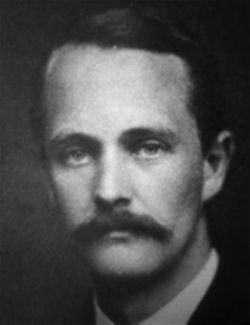The Texts of these two variations on the same theme are taken from T. Ravenscroft's Melismata, 1611, and Scott's Minstrelsy, 1803, respectively. There are several other versions of the Scots ballad, while Motherwell prints The Three Ravens, changing only the burden.
Chappell (Popular Music of the Olden Time) says of the English version that he has been 'favored with a variety of copies of it, written down from memory; and all differing in some respects, both as to words and tune, but with sufficient resemblance to prove a similar origin.' Consciously or not, the ballad, as set by him to its traditional tune, is to be sung without the threefold repetition shown by Ravenscroft, thus compressing two verses of the ballad into each repetition of the tune, and halving the length of the song.
THE THREE RAVENS
1.
There were three rauens sat on a tree,
Downe a downe, hay down, hay downe
There were three rauens sat on a tree,
With a downe
There were three rauens sat on a tree,
They were as blacke as they might be.
With a downe derrie, derrie, derrie, downe, downe.
2.
The one of them said to his mate,
'Where shall we our breakefast take?'
3.
'Downe in yonder greene field,
There lies a knight slain vnder his shield.
4.
'His hounds they lie downe at his feete,
So well they can their master keepe,
5.
'His haukes they flie so eagerly,
There's no fowle dare him come nie.'
6.
Downe there comes a fallow doe,
As great with yong as she might goe.
7.
She lift vp his bloudy hed,
And kist his wounds that were so red.
8.
She got him vp vpon her backe,
And carried him to earthen lake.
9.
She buried him before the prime,
She was dead her selfe ere euen-song time.
10.
God send euery gentleman
Such haukes, such hounds, and such a leman.
The Twa Corbies
1.
As I was walking all alane,
I heard twa corbies making a mane,
The tane unto the t'other say,
'Where sall we gang and dine to-day?'
2.
'In behint yon auld fail dyke,
I wot there lies a new slain knight;
And nae body kens that he lies there,
But his hawk, his hound, and lady fair.
3.
'His hound is to the hunting gane,
His hawk to fetch the wild-fowl hame,
His lady's ta'en another mate,
So we may mak' our dinner sweet.
4.
'Ye'll sit on his white hause bane,
And I'll pike out his bonny blue een:
Wi' ae lock o' his gowden hair,
We'll theek our nest when it grows bare.
5.
'Mony a one for him makes mane,
But nane sall ken whare he is gane:
O'er his white banes, when they are bare,
The wind sall blaw for evermair.'
The Three Ravens And The Twa Corbies
Frank Sidgwick
Suggested Poems
Explore a curated selection of verses that share themes, styles, and emotional resonance with the poem you've just read.
